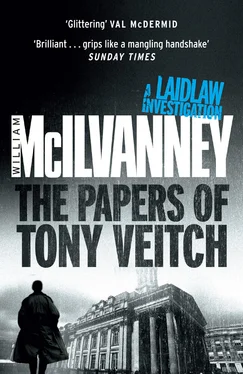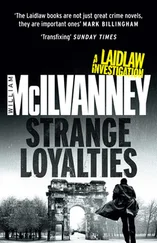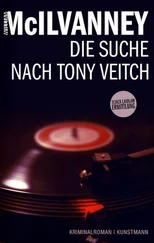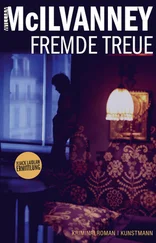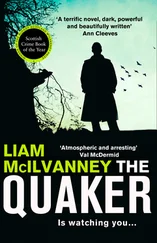William McIlvanney - The Papers of Tony Veitch
Здесь есть возможность читать онлайн «William McIlvanney - The Papers of Tony Veitch» весь текст электронной книги совершенно бесплатно (целиком полную версию без сокращений). В некоторых случаях можно слушать аудио, скачать через торрент в формате fb2 и присутствует краткое содержание. Год выпуска: 0101, Издательство: Canongate Books, Жанр: Полицейский детектив, на английском языке. Описание произведения, (предисловие) а так же отзывы посетителей доступны на портале библиотеки ЛибКат.
- Название:The Papers of Tony Veitch
- Автор:
- Издательство:Canongate Books
- Жанр:
- Год:0101
- ISBN:нет данных
- Рейтинг книги:3 / 5. Голосов: 1
-
Избранное:Добавить в избранное
- Отзывы:
-
Ваша оценка:
- 60
- 1
- 2
- 3
- 4
- 5
The Papers of Tony Veitch: краткое содержание, описание и аннотация
Предлагаем к чтению аннотацию, описание, краткое содержание или предисловие (зависит от того, что написал сам автор книги «The Papers of Tony Veitch»). Если вы не нашли необходимую информацию о книге — напишите в комментариях, мы постараемся отыскать её.
The Papers of Tony Veitch — читать онлайн бесплатно полную книгу (весь текст) целиком
Ниже представлен текст книги, разбитый по страницам. Система сохранения места последней прочитанной страницы, позволяет с удобством читать онлайн бесплатно книгу «The Papers of Tony Veitch», без необходимости каждый раз заново искать на чём Вы остановились. Поставьте закладку, и сможете в любой момент перейти на страницу, на которой закончили чтение.
Интервал:
Закладка:
‘Fair enough,’ he said. ‘We’ll do it that way. You in your small corner and me in mine. All ye have to do is listen. Tony Veitch is due me money. Paddy Collins was going to help to collect. Tony Veitch has disappeared. Paddy Collins is extra dead. That’s where we are. Ah’ll tell ye where we’re goin’. Cam Colvin is Paddy’s brother-in-law. If ye don’t know him, Ah’ll tell ye who he is. The Black Death in a pinstripe suit. Ah take money, he takes lives. He’s angry about Paddy and lookin’ for anybody connected with him recently. Ah know a lot of things Cam doesny know. You were there when Paddy met Tony Veitch. You had a wee thing with Paddy. Then you moved on to Dave McMaster.’
‘What’s Tony supposed to have done?’
‘Ye miss the point. Ah mean, we both know what he’s done. But ye miss the point. Ah’m not here to answer questions. Ah’m here to ask one. Just one. Where’s Tony Veitch?’
‘I don’t know. I honestly don’t know. How am I supposed to know?’
‘Ye’re either lyin’ or ye’re not. Ah haveny the time to worry about it. But Ah know one thing. Ye can find out. You an’ him was close. An’ that’s what ye’re goin’ to do. Ye got a pen?’
He tore a strip of paper off the bottom of the calendar behind him. Automatically, she picked up a pen from the table and handed it to him. He wrote something down, handed pen and paper back to her. He had written a telephone number, the pen-point having gone through the paper a couple of times.
‘What am I supposed to do with this?’
‘You’ve got the rest of the day. You phone me there. And tell me where Tony Veitch is. If Ah’m not in, you keep phoning till Ah am in.’
‘You can’t be serious.’
‘Ah thought Ah was.’
‘There’s no way I can find out. He’s disappeared.’
‘Ye’ve got two choices. Ye find him or Ah pass on what Ah know to Cam Colvin. You tell Dave McMaster that. Ah don’t think Dave wid like that to happen. The bother could be very bad. You’re a tourist here, hen. Ye don’t know what it’s really like. Ah can arrange tae show ye. Ye like mixin’ wi’ tearaways, do ye? Ah can mix ye in that much, ye’ll never get loose again.’ He pointed at her. ‘You’re in serious trouble, milady. Ah’m offerin’ you an easy road out. Take it. Tell me what Ah don’t know, an’ Ah tell nobody what Ah do know.’
He stood up.
‘Ah’m goin’ now. Phone Dave.’
He went out. As she looked at the number he had given her, she heard Janice speaking to a customer about jeans. She wished that was all she had to worry about. She lifted the phone.
16
‘Yesterday all my mogres seemed so far away.
Now Ah’m paintin’ every bloody day.
Ah’ve chinged ma mind. Gi’es yesterday.’
The singing led them to the house. It was near the top of the road, past Hillhead Parish Church. The big double doors were lying open with a piece of cardboard against the jamb with ‘Wet Paint’ painted on it. Two men in stained white boilersuits were painting the groundfloor windows on either side of the door. The one on the left, a florid man in his fifties, was working at ground level. The other, about thirty and in need of a shave, was up a ladder because his window was above the basement flat. He was the singer. His improvised lyric had tailed off into Glaswegian mouth-music: ‘Ta-ta-reetin-deetin-beetin-bu-ta-reeting-du-da-reeting-du.’
It was a big, handsome house, three-storeyed with a long, low modern dormer window. Its Victorian portentousness, basking in the sunshine, was undermined somewhat by the nine push-buttons inset in its front. The names listed beside the buttons testified to the contemporary identity crisis being undergone by a building constructed out of a formidable self-assurance. No doubt it felt a certain affinity with James R. P. S. MacKenzie and Miss L. S. Booth-Williams. But the basement claimed to be occupied by ‘Maggie, Jeanne, Sarah and Mad Liz.’ Flat 9 said ‘The Friends of Che.’
‘Lookin’ for Mad Liz, boays?’ the singer asked. He pointed downwards. ‘She dwelleth in the nether regions. A right big cracker. An’ daft as a brush. The perfect combie.’
Laidlaw laughed and Harkness waved and they went in past the payphone in the hall. As they climbed the stairs, they heard the preoccupied conversation of the painters through the open door.
‘She’s no’ that mad that she fancies you anyway,’ the older man said.
‘Harry! They all fancy me. Ah carry a pocketful o’ stones tae throw at them. Ah’ve got tae protect maself. Why d’ye think Ah go hame a different road every night? Tae avoid all these birds in ambush.’
‘Ye couldny get yer end away at an orgy.’
‘Anyway, Ah don’t think yon was Mad Liz.’
‘The big blondie?’
‘Nah. Ah didny fancy her anyway. Like a prop-forward wi’ tits. Pa-ra-dee-pa-ra-rutin-dutin-beedle-be. .’
Flat 9 was up a final small stair to what had been part of the attic. Laidlaw knocked on the Yale-locked door.
‘Aye. Who’s that?’
Laidlaw made a face that meant he didn’t talk to doors and knocked again. There was something said that sounded like ‘Oh to hell,’ a pause, and the door opened.
‘Guthrie Hawkins?’
He grimaced. ‘Gus Hawkins.’
He wore only a pair of jeans. He was early twenties, with blue direct eyes that looked as if they wouldn’t have been intimidated by a regiment. His hair was black, cut rough and ruffled. He was fairly short but his bare torso was so blatant with power height would have been overstatement. When his eyes came up from Laidlaw’s identity-card they had grown a skin of distance.
‘What’s this about?’
‘It’s about Tony Veitch.’
‘Again?’ he said and smiled. ‘You going to wait there a minute, please?’ He closed the door on them.
When it opened again, he was carrying a v-necked sweater. He pulled it over his head as they came in.
The door opened directly on to the one-roomed flat. To the left of it hung a curtain of blue and white plastic strips, separating the cooker, sink and some cupboards from the rest of the room. There were three beds, two of them with cushions decorating their neatness. The third bed had signs of having been hastily made up, suggestive wrinkles showing beneath its coverlet.
But the essence of the place wasn’t in the sparseness of its furnishings. It was in what had grown in their interstices. The walls were a collage defying interpretation. Che Guevara was surrounded by Thurber cartoons, his handsome romanticism as decontextualised as a tragedian on a tube-train. There were various photographs and drawings obviously cut out of books: Marx, Camus, T. S. Eliot, Socrates, John Maclean pointing an admonitory finger at the world, Marlon Brando refusing to give Eva Marie Saint back her glove in On the Waterfront , Hemingway studiedly being Hemingway. There were prints of ‘Old Woman Cooking an Egg’, Pisarro’s ‘Peasant Digging’ and Breughel’s ‘Icarus’ with a typewritten sheet beside it containing Auden’s ‘Musée des Beaux Arts’. There was a postcard from Pollok House showing ‘Adam Naming the Beasts’ and ‘Eve Naming the Birds’. Most conspicuously, there were books, the real furniture. They covered the place like a fungoid growth, having proliferated from the single three-tiered bookshelf into piles on the floor.
The images all around were like holes drilled in the drab walls, offering strange vistas. Together with the books, they were a denial not just of the room but of the city beyond it, a refusal to have vision circumscribed by circumstances.
Laidlaw felt immediately two things: that just by standing here he was closer to Tony Veitch, could take the pulse of his comprehensible strangeness, knew a little better where he came from; that he was looking at a lost part of himself. He stood among the complex and incompatible idealisms of youth and remembered having been there. Remembering that, he had the grace to be aware that he was alien. Middle-age was a foreign country here. This was a shrine to youth, where compromise was like a profanation.
Читать дальшеИнтервал:
Закладка:
Похожие книги на «The Papers of Tony Veitch»
Представляем Вашему вниманию похожие книги на «The Papers of Tony Veitch» списком для выбора. Мы отобрали схожую по названию и смыслу литературу в надежде предоставить читателям больше вариантов отыскать новые, интересные, ещё непрочитанные произведения.
Обсуждение, отзывы о книге «The Papers of Tony Veitch» и просто собственные мнения читателей. Оставьте ваши комментарии, напишите, что Вы думаете о произведении, его смысле или главных героях. Укажите что конкретно понравилось, а что нет, и почему Вы так считаете.
